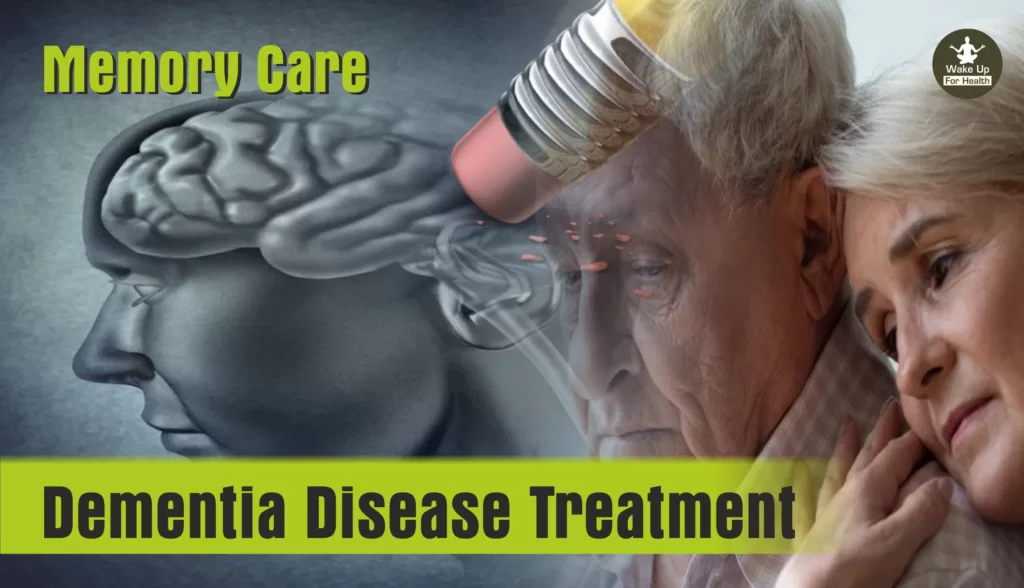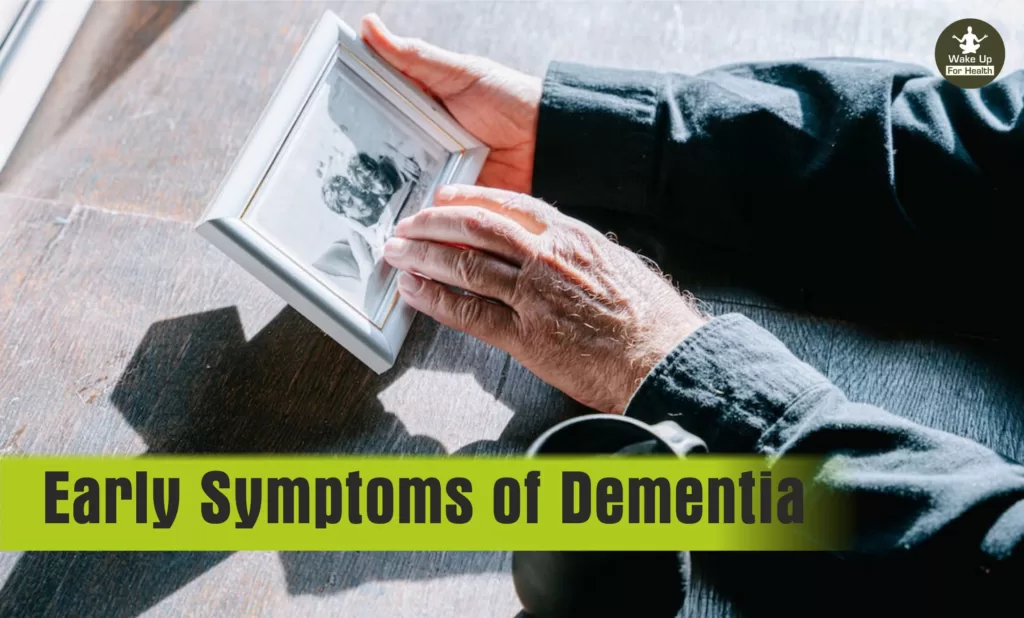Dementia is not a specific disease. It describes a group of symptoms affecting memory, thinking and social abilities that can interfere with and hinder a person’s day-to-day functioning. While dementia usually involves memory loss, memory loss can occur for other reasons and is therefore not a symptom of dementia alone. Dementia can occur in older adults with Alzheimer’s disease. How to know if a person has dementia, how to get a diagnosis? Is there any medicine for this? What is needed for dementia care?
Navigating Dementia and Memory Care
Dementia is a group of symptoms (syndrome) and all these symptoms are related to the abilities of the brain. It is also known as dementia. In dementia there is a decline in a person’s cognitive abilities – that is, the ability to think, reason and remember. This decline is greater than that seen in normal aging.

A person can have a variety of symptoms – such as problems with memory, reduced ability to think and understand, poor sense of time and space, difficulty with calculations, difficulty in learning, language and ability to make correct decisions scarcity, etc. Along with the loss of these abilities, the person often also shows changes in mood, emotional control, behavior or motivation. Due to these, a person has difficulty in performing essential daily tasks and maintaining personal hygiene.
Dementia can result from a variety of diseases and injuries affecting the brain, such as Alzheimer’s disease, stroke, fronto temporal dementia, dementia with Lewy bodies, etc. Most dementias are progressive in nature and worsen over time.
What is the Relation between Dementia and Alzheimer’s?, Types of Dementia, Care Strategies
Dementia is a group of symptoms. These symptoms can be caused by many diseases. Alzheimer’s disease is a disease affecting the brain that is the most common cause of dementia, but there are many other diseases that can cause symptoms of dementia.
The terms dementia and Alzheimer’s are often used interchangeably in articles and lectures. The names of dementia institutions also often contain the word Alzheimer’s. That’s why people may not recognize that there are many other diseases besides Alzheimer’s that can cause symptoms of dementia.
Early Symptoms of Dementia?

The most popular of the early symptoms is memory problems. The memory problems seen in dementia are different from the forgetfulness of normal aging. In dementia, the problem is particularly with short-term memory – that is, difficulty remembering recent events or recently learned things.
But if we consider dementia only as a “disease of forgetfulness”, then we will not notice its other symptoms. There are many other early symptoms of dementia, which are reflected in strange behavior. As if:
• Having difficulty doing familiar everyday tasks – such as being confused when making tea
• Having language problems, such as not being able to find a substitute for the right words when speaking, or using strange words
• Loss of accurate sense of time and place, getting lost in familiar places, or not knowing whether it is day or night
• Misplacing objects, such as a clock in the fridge
• Making inappropriate decisions, such as wearing a thick wool coat in the hot sun
• Difficulty with attention, planning and problem solving, difficulty with calculations. lapses in routine activities, such as not paying the electric bill
• Changes in mood and behavior – unexplained rapid swings in mood, or less socializing with people than before
• Vision problems – problems recognizing and understanding images, problems with distance and depth judgment, problems with color and contrast, problems with reading
• Withdrawal from work and social activities – sitting in front of the TV doing nothing for hours, sleeping more than before, losing interest in old hobbies.
Must know about it : What is Epilepsy?
What is the Causes of Dementia?
Many other diseases can cause memory problems. Depression can lead to a dementia-like condition that can improve with antidepressants and talk.
• Memory related problems can arise in the following physical diseases-
• Kidney, liver or thyroid problems
• Lack of vitamins
• Chest and urinary tract infections may cause confusion. Which can be improved with the help of antibiotics.
• Huntington’s disease can cause dementia in young people.
Due to Dementia
• Damaged brain cells can lead to dementia. This affects the ability of brain cells to communicate with each other. There is also an effect on the thinking, behavior and feelings of the victim.
• It can also be understood like this: We know that there are different parts of the brain and each part performs different functions. When cells in a particular area are damaged, that area cannot carry out its functions normally.
• Dementia can also be caused by head injury, stroke, brain tumor or HIV infection.
• Most changes in the brain that cause dementia ie can be permanent and worsen over time.
If a person is diagnosed with conditions like depression, side effects of medicine, thyroid, vitamin deficiency etc. then it should be treated on time.
What are the Types of Dementia?
The symptoms of dementia and its progression depend on the type of dementia a person has. The common types of dementia that can be diagnosed are the following:

The most common type of dementia is Alzheimer’s disease. Alzheimer’s disease is caused by changes in the brain that build up proteins that damage nerves. Due to this, the size of the brain decreases in the person suffering from it.
2. Lewy Bodies Dementia
This is a form of dementia that is caused by the accumulation of the protein alpha-synuclein in the cortex. In addition to memory loss and confusion, Lewy bodies dementia can also cause other conditions, such as sleep disturbances, confusion, imbalance, difficulty with other activities, etc.
This disease is a neurodegenerative condition (a condition in which the nervous system is damaged) that can cause dementia and in later stages can act like Alzheimer’s. Due to this disease, there is difficulty in other activities and driving etc. But due to this some people also get dementia.
4. Mixed Dementia
This means that a person can have both Alzheimer’s and vascular dementia at the same time. But other types of dementia are also included in this.
5. Frontotemporal Dementia
Refers to a group that often causes changes in personality and behavior. This can also cause difficulty in understanding or speaking the language. Frontotemporal dementia can be caused by a number of conditions, including Pick’s Disease and Progressive Supranuclear Palsy.
What is Lewy Body Dementia?
Symptoms of people suffering from Lewy body dementia are similar to those of Alzheimer’s and Parkinson’s disease. Visual hallucinations related to persons or animals are more common in these patients and the level of delusion may increase or decrease throughout the day. People suffering from this disease may experience tremors, stiffness in the muscles, fall or difficulty in walking.
Fronto Temporal Dementia.
If dementia affects the frontal lobes more than other parts of the brain, a person’s personality can change significantly and this can cause memory problems.
What is Treatment For Dementia?
Unfortunately, there is no cure for this disease yet and scientists are still searching for the causes of this disease. If cells in the brain stop working and this cannot be stopped, there is no known cure for degenerative dementia.
Management of disorders such as Alzheimer’s disease focuses on the symptoms of care and treatment, rather than on its underlying causes. Therefore, the symptoms of Alzheimer’s disease can be reduced by some medicines.
Dementia is usually caused by disturbances in the cerebral cortex, which is a part of the brain. It also works for thinking, decision making and maintaining the personality. When brain cells in these areas are destroyed, it causes cognitive impairment, which is a characteristic of dementia.
Head injury, brain tumor, infection, hormone disorders like thyroid disease, hypoxia (poor oxygen in the blood), metabolic disorders, drug addiction, etc., dementia are some of the reasons that can increase the risk of this disease.
There is no cure for most types of dementia, but its symptoms can be managed through medication and therapy.
1. Medicine
Medicines for dementia depending on the symptoms include donepezil, rivastigmine, galantamine, memantine etc.
Foods rich in vitamin D and omega-3 fatty acids are said to be capable of preventing dementia.
2. Therapy
The following techniques can help people with dementia to a great extent:
• Pet Therapy
• Music Therapy
• Aroma therapy
• Art Therapy
• Massage Therapy
(Disclaimer: This article is for general information only. It is just to wake you up for your health purpose. Out intension is not to mislead or It cannot in any way be a substitute for any medicine or treatment. Always contact your doctor for more details.)
F.A.Q.
Question : What is the main cause of dementia?
Answer : Dementia is caused by damage to brain cells. This damage interferes with the ability of brain cells to communicate with each other. When brain cells cannot communicate normally, thinking, behavior and feelings can be affected.
Question : How can you avoid dementia?
Answer : There are some way to avoid dementia.
- Physical activity. Doing regular physical activity is one of the best ways to reduce your risk of dementia.
- Eating healthily.
- Don’t smoke.
- Drink less alcohol.
- Stay mentally and socially active.
- Take control of your health.
Question : What are the first signs of having dementia?
Answer : Although the early signs vary, common early symptoms of dementia include:
- memory problems, particularly remembering recent events.
- increasing confusion.
- reduced concentration.
- personality or behaviour changes.
- apathy and withdrawal or depression.
- loss of ability to do everyday tasks.
Question : What are the 7 stages of dementia?
Answer : The 7 stages of Dementia
- Normal Behaviour
- Forgetfulness
- Mild Decline
- Moderate Decline
- Moderately Severe Decline
- Severe Decline
- Very Severe Decline
3 thoughts on “Dementia Disease : Symptoms, Types, Causes and Treatment”